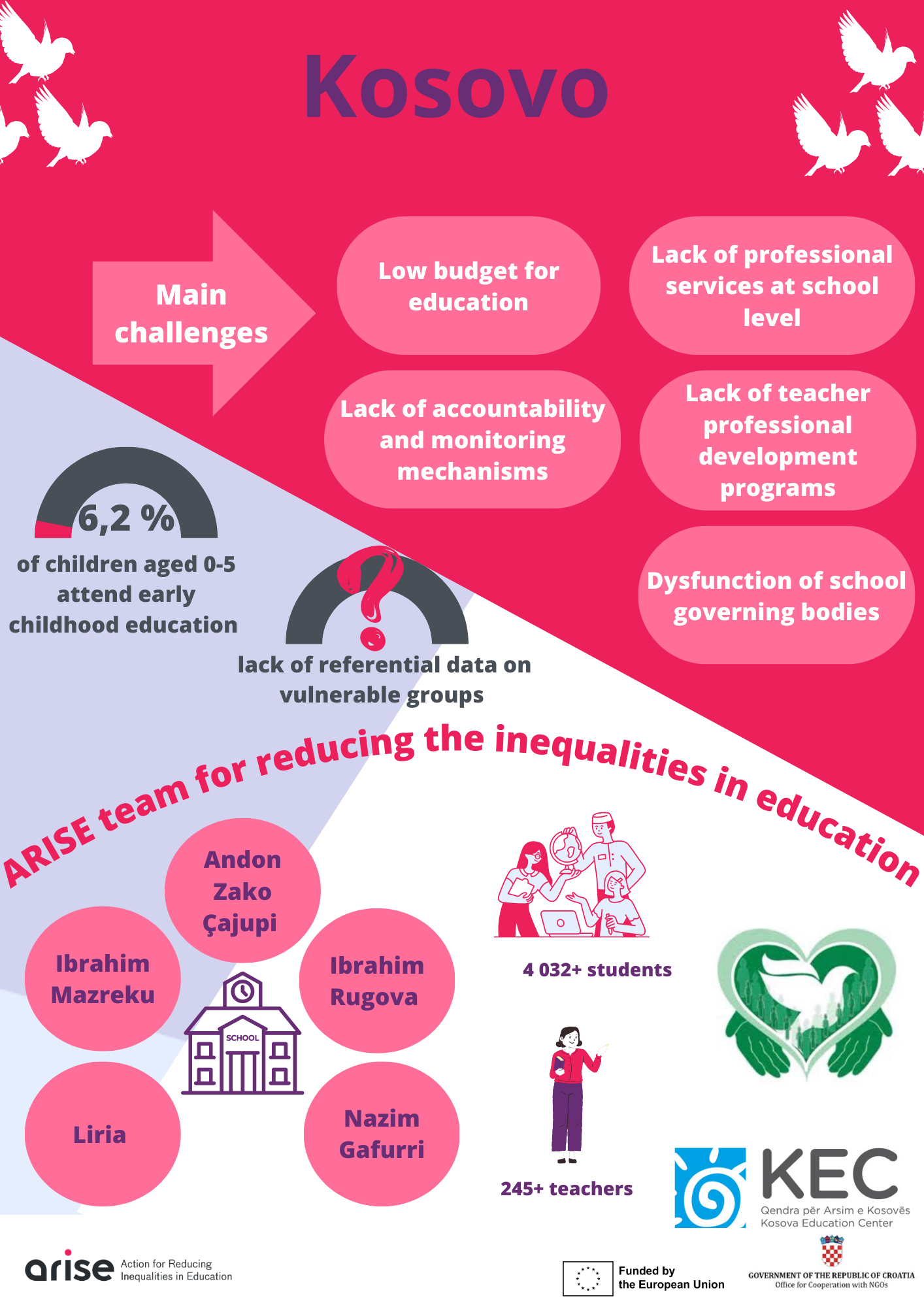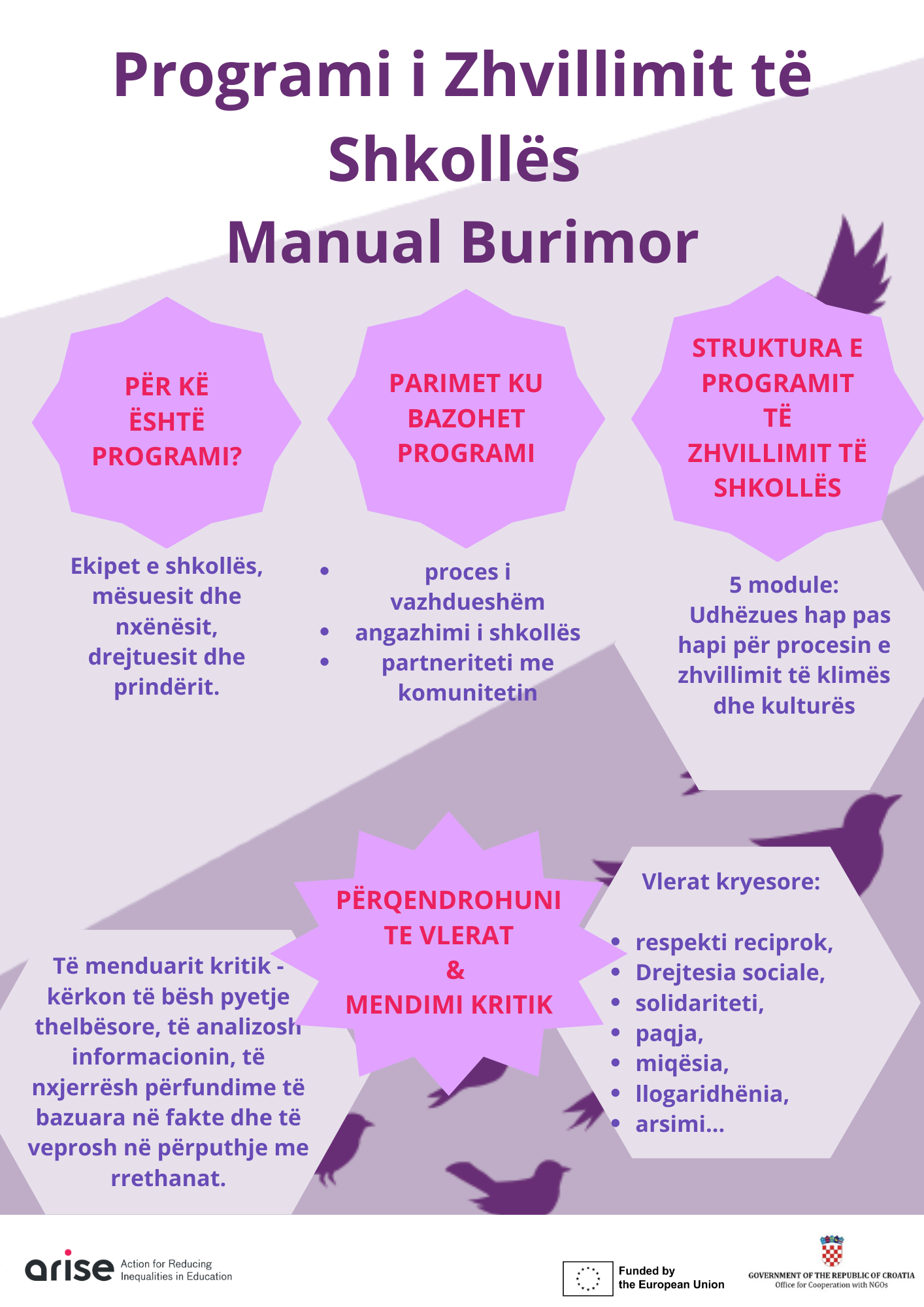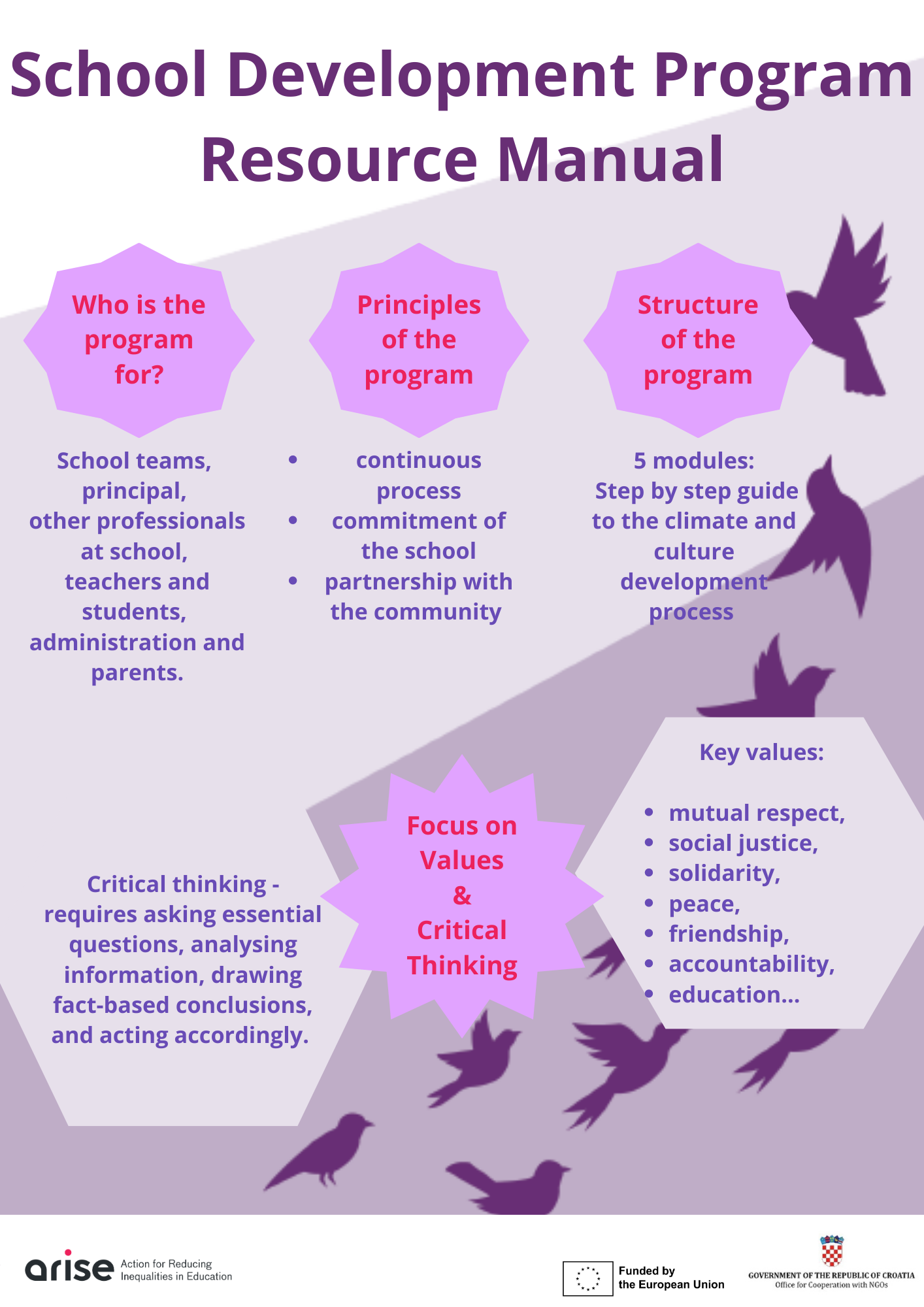Even though Kosovo has undergone major educational reforms, ensuring the quality of education remains a challenge. Learn more about main challenges identified on the policy level, but also how are we addressing them on the school level in the following article.
Even though Kosovo has undergone major educational reforms, ranging from the decentralization of the education system to the development of a competency-based curriculum framework, the introduction of quality assurance mechanisms, teacher professional development and licensing system, to ensure the quality of education remains a challenge.
The national report for Kosovo developed within the project indicated that, for example, in early childhood education, levels of participation of children in preschool level were only 6.2% of children aged 0-51. Furthermore, PISA 2018 results showed that Kosovo 15-year-old students performed amongst the lowest in all of the testing disciplines2. Moreover, according to the report, the most vulnerable groups to exclusion in education in Kosovo are children from Roma, Ashkali and Egyptian communities and children with special educational needs, however, due to the lack of referential data on population, it is impossible to assess the gross enrolment rates of these groups in the education system.
Even though Kosovo’s legal framework envisions and supports a comprehensive approach, which combats dropouts from compulsory education and ensures equal access to education there is a large gap between policy development and policy implementation. In the report, there were several challenges identified that hinder the implementation of policies:
- Lack of accountability and monitoring mechanisms to ensure proper implementation of policies at national, local and school level;
- Low budget for education and inefficient allocation of resources;
- Lack of professional services (psychological and pedagogue) at school level in supporting students’ ability to learn, succeed academically, socially and emotionally;
- Dysfunction of school governing bodies, namely steering council, parents’ and students’ councils;
- Lack of teacher professional development programs to acknowledge student identities and the different ways they learn best.
In the policy brief, you may find the overview of the main points from the national report, including the main challenges identified, as well as the recommendations and promising policy examples.
To get the proper perspective, after addressing the main challenges on the policy level, we must focus on the importance of the school level as well. School-level interventions have a significant role in the ARISE project. Kosova Education Center (KEC), ARISE project coordinator and non-governmental organization aiming to develop the capacity for advancing the education system by providing high quality services and resources and cooperating actively with all stakeholders in and outside the country is implementing ARISE School Development Program in five schools in Kosovo:
ARISE School Development Program is based on the belief that improving the school climate and culture is a continuous process requiring the commitment and partnership of all community members. Overall, more than 4 032 students and 245 teachers in Kosovo are direct or indirect beneficiaries of the step-by-step program focused on school climate and culture development.
Within the ARISE we have developed School Development Resource Manual intended primarily to empower schools in the process of creating a safe environment where every child feels accepted and develops the competences, he or she needs for living and creating a society based on universal human values, mutual respect and support.
Resource Manual is available in English, Albanian, Bosnian, Macedonian and Serbian language – here.
1 Kosovo 2020 Report. European Commission. Brussels, 2020. https://ec.europa.eu/neighbourhood-enlargement/sites/near/files/kosovo_report_2020.pdf
2 Kosovo Country Note – PISA 2018 Results. OECD, 2019. http://www.oecd.org/pisa/publications/ PISA2018_CN_KSV.pdf



